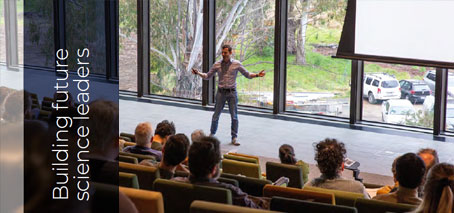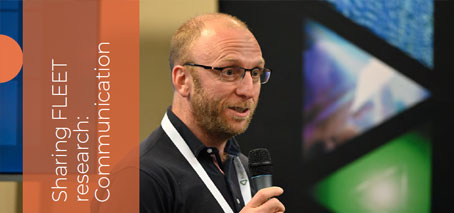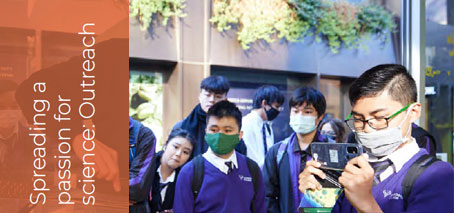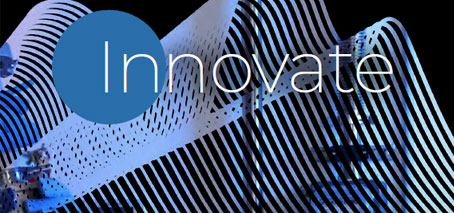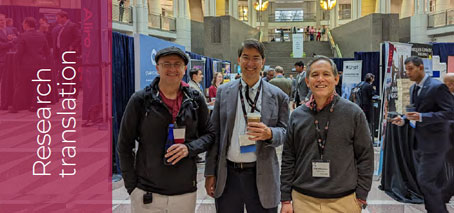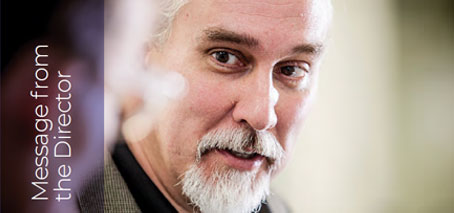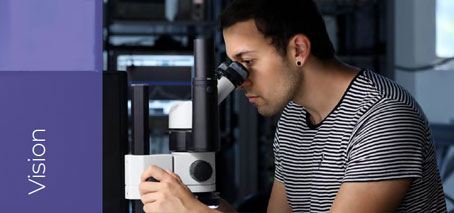FLEET is developing future Australian science leaders and preparing them for future success FLEET is working to develop Australia’s next generation of science leaders. All FLEET’s students and young researchers receive excellent supervision, are offered world-class training and other opportunities for professional development, and are supported in navigating diverse future career pathways. The Centre currently supports 63 higher degree by …
Sharing FLEET research: Communication in 2022
Centre communications cover both internal and external needs. While the two audiences are very different, base content is used across both areas to maximise efficiency. FLEET’s communication functions include: Internal communications to maintain a cohesive Centre Informing the Australian public of the benefits being gained from research funded by the ARC Supporting FLEET’s outreach functions to build a more science-aware …
Spreading a passion for science: Outreach in 2022
FLEET has an extremely ambitious program of STEM outreach and communication, engaging Australians with science – from school children to the public to policymakers FLEET’s outreach activities improve public awareness of FLEET research and scientific literacy among school students. FLEET members get a greater appreciation of their audience’s interests, understanding and values, and learn how to effectively communicate with them. …
Collaboration at FLEET in 2022
FLEET’s extensive network of 23 leading national and international research partners is key to fulfilling the Centre’s mission. FLEET is building synergies between Australian research communities. The percentage of cross-node publications has grown each year from 3% in the Centre’s first year (2017) to 23% in 2022, reflecting the importance of inter-node research in FLEET. Publications involving multiple chief investigators, …
FLEET is pursuing the following research themes to develop systems in which electrical current can flow with near-zero resistance: Topological materials Exciton superfluids Light-transformed materials The above approaches are enabled by the following technologies: Atomically-thin materials Nanodevice fabrication FLEET’s approach is multidisciplinary, combining efforts across condensed-matter, cold-atom physics, material science and nanofabrication. FLEET will: Develop and progress new concepts for …
Research translation in 2022
Translating FLEET research to industry innovations with societal impact With a goal to help transform Australia’s electronic technologies and work towards research translation outcomes, FLEET is actively building partnerships and links with research and industry organisations working on novel electronic devices and systems. ENGAGING WITH INDUSTRY Progress towards this important goal in 2022 included: Initiating the FLEET Translation Program (see …
Equity & diversity at FLEET in 2022
Taking concrete steps to improve diversity in science FLEET’s steps to improve women’s representation in physics, within the Centre and more widely, have expanded to encompass wider definitions of diversity. FLEET continued its commitment to equity and diversity within STEM by funding the first new research fellow positions as part of the Women and Diversity in FLEET Fellowship initiative. Four …
FLEET 2022: Message from the Director
2022 marks the fifth full year of FLEET operations. At this stage in the Centre’s life, FLEET is focused on demonstrating key research milestones with the highest impact, pathways to translate the most promising research results, and understanding and quantifying the impact that FLEET has made – not only in research, but in training, outreach and diversity. These activities will …
A vibrant and productive year: FLEET 2022
FLEET has had a vibrant and productive year in 2022. Disruptions to research due to the pandemic subsided in 2022, and international travel slowly returned, enabling increased activities with partners. This allowed FLEET to make maximum use of the capacity and network it has built in the last five years to make excellent progress towards its research goals (see highlights …

